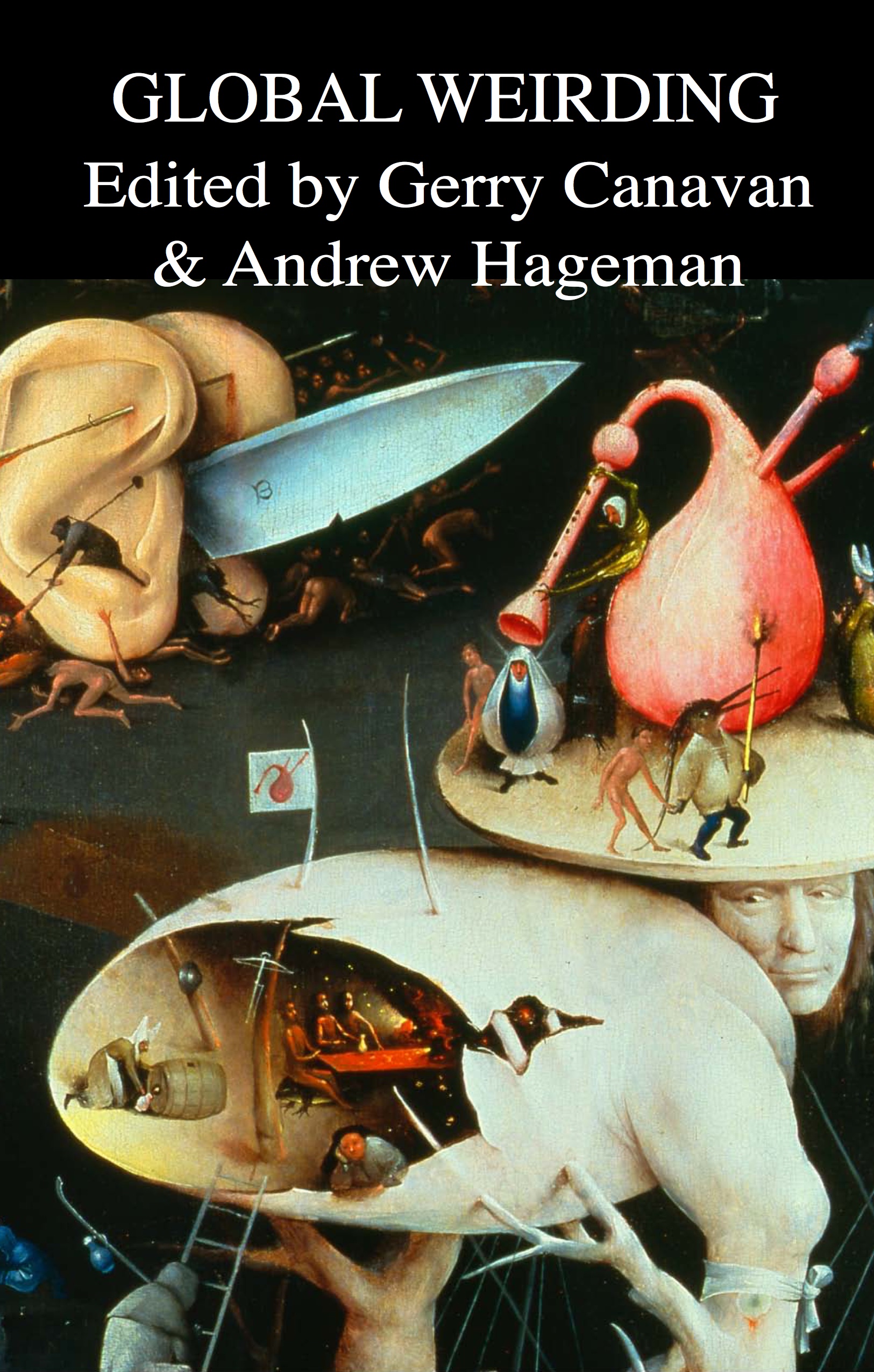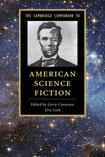‘Inception’
 Very quickly, and with spoilers: I’ve been informed that my quick take on Inception’s dream-infiltration as an allegory for film creation—both dreams and films starting in medias res and employing cuts to obscure origins and transitions, both building small but deceptively complex conceptual mazes into which the viewer can pour her secret desires and emotional investments, both organized fundamentally around willed suspension of disbelief and slight-of-hand—has already been taken up by io9 and CHUD. This is what I get for going on vacation!
Very quickly, and with spoilers: I’ve been informed that my quick take on Inception’s dream-infiltration as an allegory for film creation—both dreams and films starting in medias res and employing cuts to obscure origins and transitions, both building small but deceptively complex conceptual mazes into which the viewer can pour her secret desires and emotional investments, both organized fundamentally around willed suspension of disbelief and slight-of-hand—has already been taken up by io9 and CHUD. This is what I get for going on vacation!
Most of the other Internet criticism I’ve been reading has been preoccupied with the problem of the ending, particularly whether it “means” the one thing or the other—which of course is about as useful as trying to “prove” it was the lady and not the tiger. The audacious-but-predictable refusal to show the final orientation of the spinning top, which in my theater as in most was greeted with gasps, groans, and happy nervous laughter, isn’t some puzzle to be solved: it’s just the exclamation point for the allegory. The same goes for any of the rest of the film’s many plot holes, inconsistencies, and mild surrealities. Of course none of it makes any sense; it was just a film, it was just a dream.
The stronger criticism, I think, has to do with the utterly mundane nature of the dreamworlds themselves; why, in an age of almost limitless directorial power, do Nolan’s characters dream solely in action-film clichés? In another director’s hands—perhaps in the hands of the young Ridley Scott, for whom the premise seems to call out—Inception might have been a masterpiece; here, it’s merely a very enjoyable spectacle, maybe even the best film of a not-great year for film, but far too impressed with its own limited gimmicks and possessing a startlingly small vision for what either films or dreams might achieve.










The same goes for any of the rest of the film’s many plot holes, inconsistencies, and mild surrealities. Of course none of it makes any sense; it was just a film, it was just a dream.
To break my own rule, I guess I mean this pretty literally. Michael Caine’s “come back to reality, Cobb, wake up”; the scene in Mombasa in which Cobb has to squeeze through an impossibly small space, followed by the improbable arrival of Saito in the nick of time; the spatial geography of the bizarre hotel ledge sequence, which seems to follow a mirrored dream logic; Mal’s lengthy demarcation of the improbabilities of the entire premise; the fact that the children don’t age and that the need to break into a “fortress America” in which Cobb’s most cherished desires are held precisely replicates Cobb’s usual strategy for “extraction”; the lack of transitions or montages to suggest a non-dream temporal continuity; the flatness of the characters, settings, and basically everything that happens; and that the way the film introduces new rules and retroactive continuities whenever necessary to sustain the illusion of a logical plot in much the same way as a dream all suggest to me that nothing we saw in Inception was “really real.”
And of course I’m right! It was all staged for the cameras.
gerrycanavan
July 20, 2010 at 8:48 pm
Reading it this way is the only way it makes any sense to me. All the things you mentioned, plus the clunky exposition and unlikely perfection of Ellen Paige’s character leaves only two possibilities — Nolan is kind of a sloppy filmmaker (unlikely given the pitch perfection of Memento and The Prestige), or it’s *all* Cobb’s dream, which is frankly less satisfying, narratively, than a tight, internally consistent story that also happens to make me question what is real.
I had a really good time sitting in the theater watching the film, but like attempting to make sense of that amazing idea I had in my dream last night, actual conscious reflection leaves the film wanting. There’s no there there.
Bill Simmon
July 20, 2010 at 9:01 pm
At one point, while watching, there was something in the film that briefly made me think Ellen Page’s character could have been Mal’s younger self. I’d have to watch the film again to know what that moment was, and I don’t know when I’ll do that.
gerrycanavan
July 20, 2010 at 9:05 pm
for what it’s worth, there are two different actors listed for each of the children with different ages listed for each. So, it implies that they do age although I didn’t see it myself. Of course this is just a minor point and doesn’t contradict your overall thesis.
Also, have you seen the Fassbinder film, World on a Wire? It is awesome, you should drop everything and see it now.
john
July 20, 2010 at 10:43 pm
I’ve seen that. I’ve also read they’re wearing different shoes in the final scene.
I don’t think I ever saw World on a Wire, only the American remake The 13th Floor.
gerrycanavan
July 21, 2010 at 3:22 am
I think it is better than The 13th Floor, really intelligent Science Fiction. Check out this small piece from the New Yorker a couple of months back,
http://www.newyorker.com/arts/critics/notebook/2010/04/19/100419gonb_GOAT_notebook_brody
john
July 21, 2010 at 2:36 pm
Sounds about right. This is one of those movies that doesn’t really seem worth reviewing (although it wishes to god that is was).
Alex
July 20, 2010 at 11:06 pm
Gerry, you stated pretty exactly how I felt. I enjoyed the movie, but it wasn’t a great work of art.
Honestly, I don’t think Nolan is that great of a movie maker. He can put together an enjoyable enough product for me to spend my $10 and 2 hours in the summer, but he has yet to make a film that stays with me in any way. The closest he has come are the parts of the Dark Knight with Heath Ledger in them, and that is Ledger’s acting and not Nolan’s directing (the rest of the movie is a really bad mess. If Ledger weren’t as good as he was, I think we would all remember the Dark Knight as one of the worst disasters in movie history).
I was at the beach this past week with family and we saw the Last Airbender. It is everything that everyone says–a pile of crap–but it isn’t that much worse than Inception. Both have really good visuals and plots that don’t much matter. The acting in Inception is much better, so that is the real difference, but they were closer in quality than I think Nolan would admit.
The problem with Nolan in general is that I don’t think he trusts himself, so he goes too far in some respects, but then not far enough in others. Example: the end. I read in an interview with one of the actors that Nolan’s point at the end was that Cobb doesn’t look–he has moved on. Fine, give us that. Let him throw the top away. That would show us that he doesn’t need to know. However, Nolan, not trusting that that would be a knock out enough ending, spins it and then shows us the top and gives us the ambiguous ending–totally hacky and totally unnecessary if the point is that Cobb doesn’t care. He doesn’t believe that his end will be enough without a gasp-inducing-talk-about-it-tomorrow show stopper.
At the same time, aside from a few visuals that they show you in the trailer, there is nothing dreamlike or surreal in the movie. The end really put me off for the reasons you note–gun fights three levels down in my dreams? Really. What could Terry Gilliam have done? Or David Lynch? Or Wes Anderson? Take away the dream element, have then just be regular theives, and there is nothing special or remarkable about the movie.
Again, I enjoyed it, but I enjoyed it in the way that I expect to enjoy Oceans 11 or the Pirates movies–fun and empty. I was expecting more, but honestly, none of Nolan’s films have really done it for me. He is the movie version of David Mitchell.
DCN
July 21, 2010 at 8:27 am
…why, in an age of almost limitless directorial power, do Nolan’s characters dream solely in action-film clichés?
One possible explanation is that they know dreaming in action-film clichés will improve their chances of getting their job done, and also that the trained subconscious security they’re fighting drag them into these types of scenarios.
I liked the film quite a lot, though I would also stop short of calling it brilliant.
Fred
July 21, 2010 at 11:19 am
One possible explanation is that they know dreaming in action-film clichés will improve their chances of getting their job done, and also that the trained subconscious security they’re fighting drag them into these types of scenarios.
That’s an explanation on the story level, and at best a fanwank (though a decent one) — my question is more about why Nolan, who could have done anything, chose to express the dreamworld in this way.
gerrycanavan
July 21, 2010 at 12:44 pm
Nolan expresses the dreamworld in action cliches precisely because for films to be on any level comprehensible, they must contain some basic, instantly-recognizable visual tropes (yes, even art-house). It’s a commentary on suspension of disbelief that’s even mentioned in the film. For the “heist” to be effectively pulled off, they can’t get too crazy with the architecture — or else people would notice. To do boffo bux at the box office, you can’t wander into Terry Gilliam territory, or else you’ll confuse the mouth breathers. Hence the non-“dreamy” dream sequences, which ultimately look like the set pieces they are meant to describe.
How much suspension is enough? Where does imagination in filmmakers distract from the catharsis we expect as moviegoers?
Nolan asks these questions in Inception, though he’s not obliged to answer them.
Casey
August 1, 2010 at 9:35 pm
[…] stop spinning, or maybe it won’t; Nolan refuses to clarify it one way or the other. Is he making a statement on the craft of movie-making itself? On the interaction of the artist and the audience, and the way we willingly open our minds to […]
Thoughts on Inception | Central Cortex
February 11, 2020 at 7:53 pm